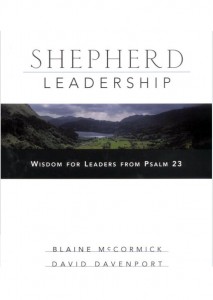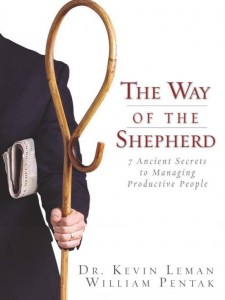This is the second insta llment in our “Books That Changed My Life” series, written by leaders and innovators in our faith community.
llment in our “Books That Changed My Life” series, written by leaders and innovators in our faith community.
I now find myself moving away from the paradigm of servant leader.
The idea of combining ‘servant’ and ‘leader’ is beautiful, and extremely attractive, as we all know from Jesus’ words to his disciples in Mark 10:42-43: “You know that among the Gentiles those they call their rulers lord it over them, and their great men make their authority felt. Among you this is not to happen.” (New Jerusalem Bible)
And yet, the words ‘servant’ and ‘leader’ tend to pull in opposite directions.
An inherent tension in servant leadership can confuse our relationships with those with whom we collaborate. Servants are not usually supposed to lead, like bossy butlers.
 In the 1993 movie, The Remains of the Day, Anthony Hopkins portrays a most unlikely hero named Stevens, butler to Lord Darlington. As butler, Stevens manages every detail of the vast Darlington household in the late 1930s. Through a combination of hard work, long hours, quiet intelligence and denying his own needs, Stevens has become what his peers would acknowledge to be a great butler.
In the 1993 movie, The Remains of the Day, Anthony Hopkins portrays a most unlikely hero named Stevens, butler to Lord Darlington. As butler, Stevens manages every detail of the vast Darlington household in the late 1930s. Through a combination of hard work, long hours, quiet intelligence and denying his own needs, Stevens has become what his peers would acknowledge to be a great butler.
Stevens is a victim of the oppressive, demeaning class system of pre-war Britain – a social structure that permanently consigned people to roles based only on the economic circumstances of their birth. Even Stevens comes to understand how his life has been wasted living in such a system. However, despite his own foibles and frailty and that of the world in which he lives, he serves with dignity and a sense of purpose.
His fulfillment is the smooth and orderly functioning of the household and the accommodation of every member of the family, staff and guest; his satisfaction is in earning the trust and confidence of the master of the house. At the end (or the remains) of the day, we might be inclined to ask, “Is that all there is?”
A philosophy or theology of service tends to focus upon what we do rather than who we are. The latter is more important than the former, and if we know who we are, even what we do is enhanced.
We see the dramatic lesson of greatness and ‘being first’ in Jesus’ washing of the disciples’ feet at the Last Supper. He takes the place of the person at the bottom, the last place, the slave. For Peter, as for most of us, this is impossible.
However, imagine with what tenderness Jesus touches the feet of his disciples, looks into their eyes, calls each one by name and says a special word to each one. When he speaks at the meal, he speaks to them all; he does not have a personal contact with them individually. But as he kneels humbly before each one and washes their feet, he has personal contact with each one. He reveals his love to each one, which is both comforting and challenging. He sees in each one a presence of his Father. The love of Jesus reveals that we are important, that we are a presence of God and are called to stand up and do the work of God: to love others as God loves us, to serve others and to wash their feet.
By washing his disciples’ feet, Jesus does not diminish his authority. He is “Lord and Master” who wants to reveal a new way of exercising authority through humility, service and love, through a communion of hearts, in a manner that implies closeness, friendliness, openness, humility and a desire to bridge the gap that so often exists between those “in” leadership and those “under” their leadership.
What Jesus is exercising is real shepherd leadership. There is a wealth of unmined richness in this scriptural, ecclesial and liturgical metaphor, not only for clergy but also for anyone exercising leadership.
“When they had eaten, Jesus said to Simon Peter, ‘Simon, son of John, do you love me more than these others do?’ He answered, “Yes, Lord, you know I love you.” Jesus said to him, “Feed my lambs….look after my sheep…feed my sheep.’” (New Jerusalem Bible; John 21:15-17)
Two books have been very helpful to me in unpacking and applying this metaphor. The first is Shepherd Leadership: Wisdom For Leaders From Psalm 23 by Blaine McCormick and David Davenport (Jossey-Bass Publications, 2003). The second is The Way of the Shepherd: Seven Ancient Secrets to Managing Productive People by Dr. Kevin Leman and Bill Pentak (Zondervan, 2004).









